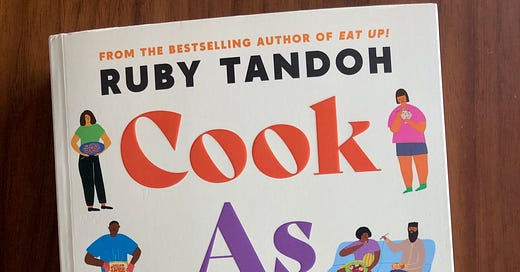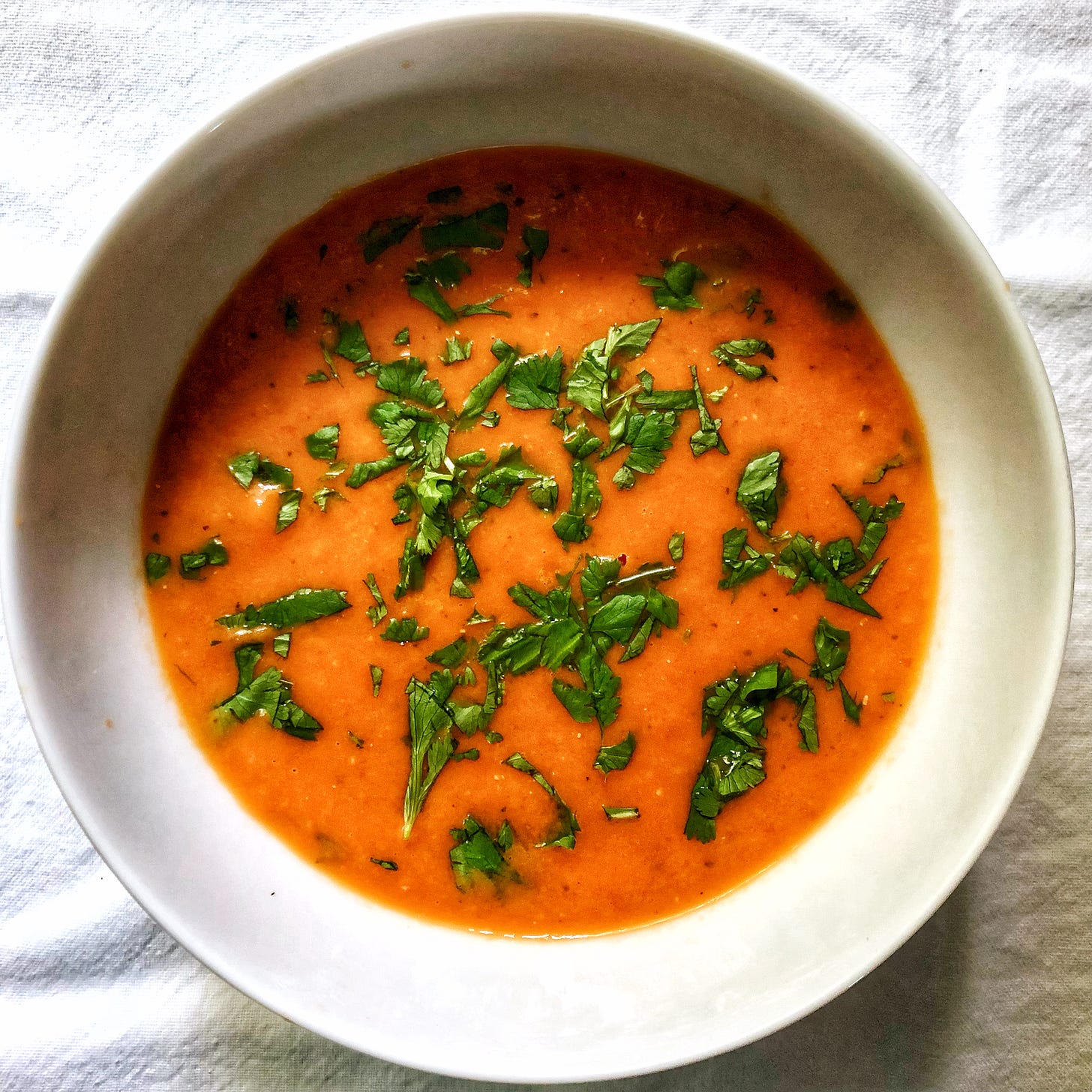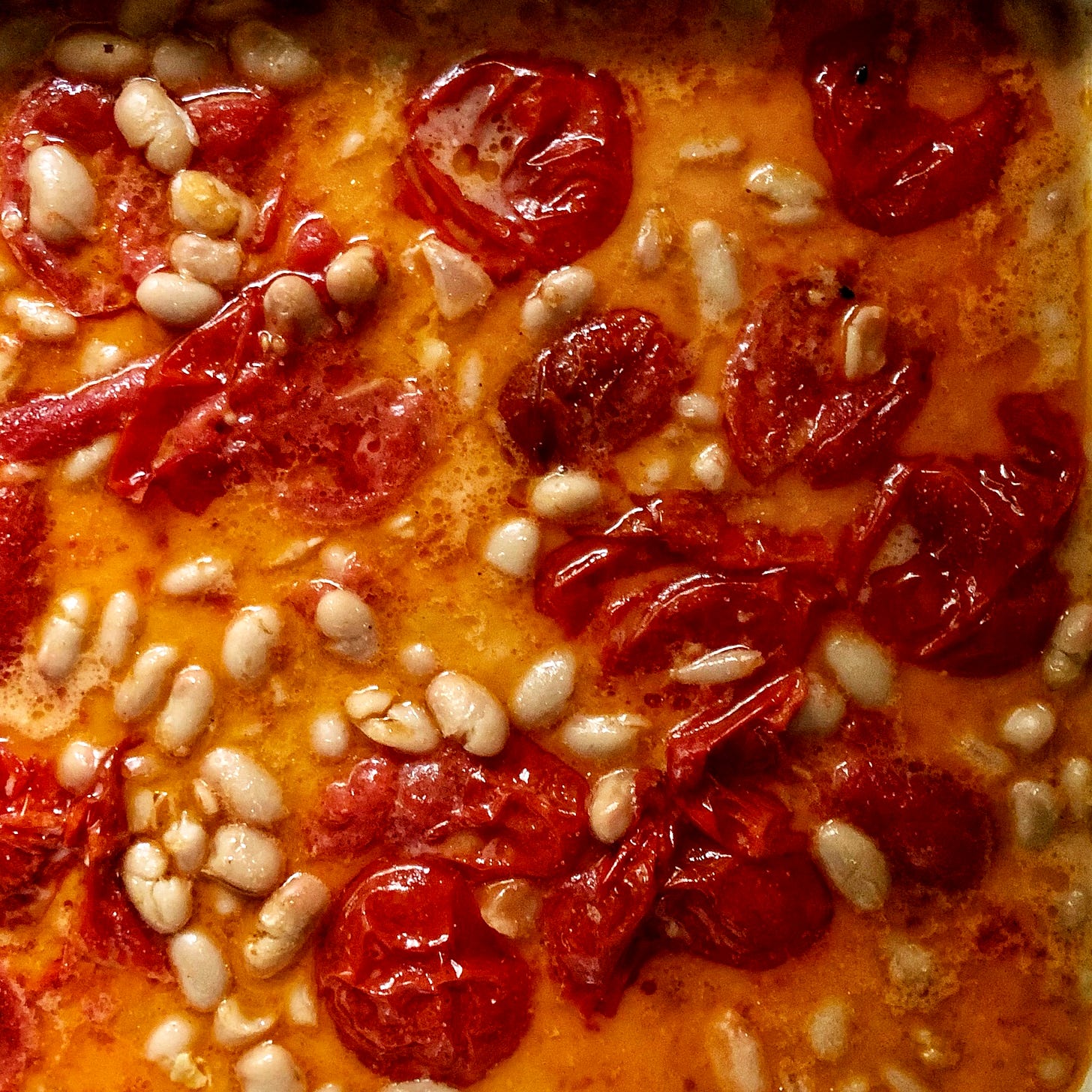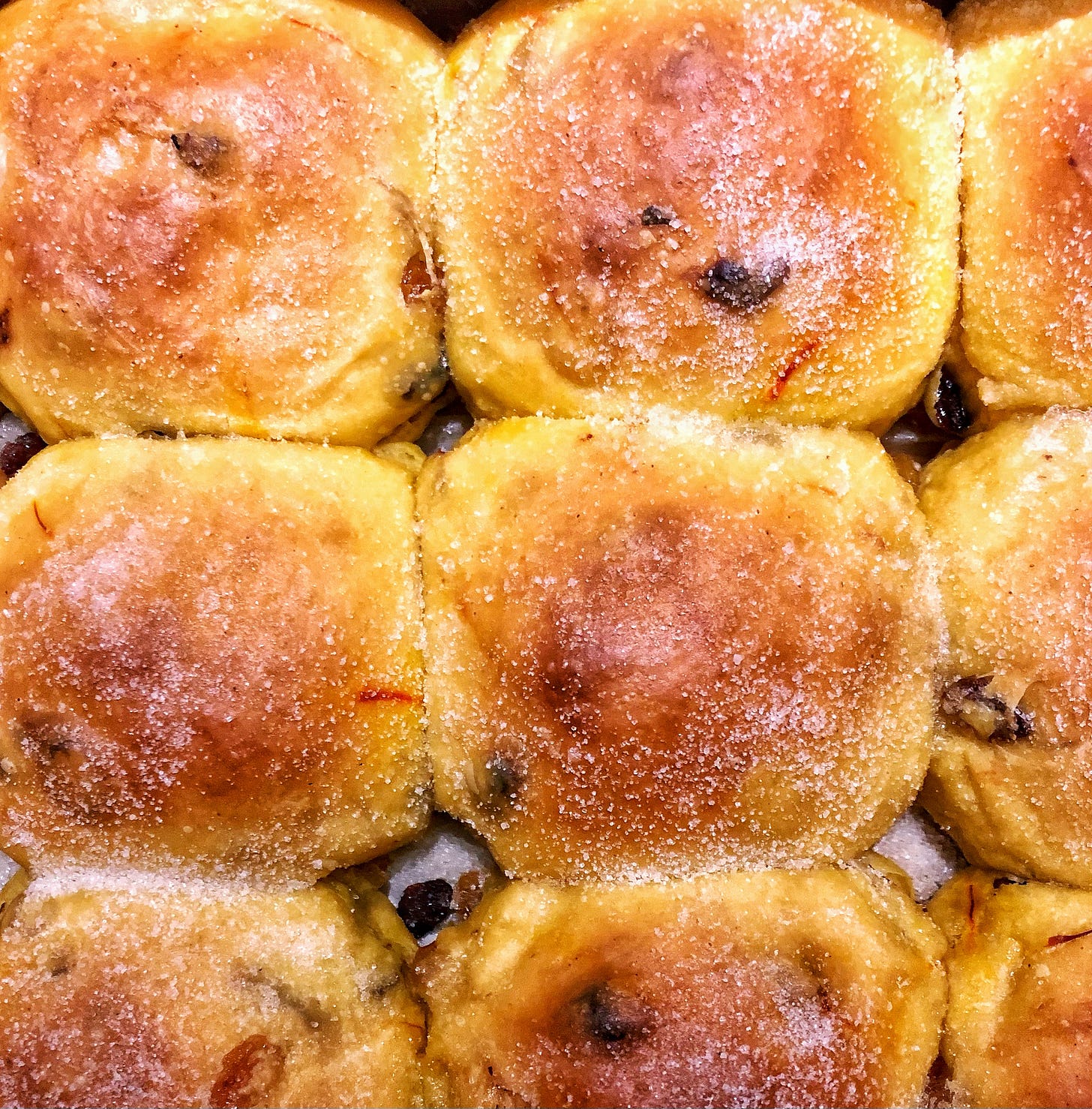Ruby Tandoh’s initiation into the public eye began during her time as a contestant and finalist during the 2013 season of the Great British Bake Off. Since then however, she has become a recognizable name in the food world — though in my opinion, perhaps not recognizable enough on this side of the Atlantic Ocean.
After Bake Off, Ruby soon became a columnist for The Guardian and wrote two cookbooks — Crumb: The Baking Book and Flavour: Eat What You Love. She also began establishing herself as a food thinker and mental wellness advocate, writing about food in a way that touched on the intersection of food and mental health.
Ruby’s co-published zine (with Leah Pritchard) called Do What You Want explores the unique experiences and manifestations of mental illness. In it are essays, works of art, poems, comics, recipes, and more, covering mental wellness from every angle. And although the zine is not strictly food focused, it seemingly ignited a new publishing theme for Ruby.
In 2018, shortly before leaving her column at The Guardian because of the “toxic” and “elitist” nature of food culture; Ruby published Eat Up!: Food, Appetite and Eating What You Want. Geared towards offering mental health advice and food and recipe tips, Eat Up! was Ruby’s distinct attempt to break away from the confines of the cookbook genre. Rather than share specific and prescriptive recipes, she used the book to explore the morality we, as a society, have attached to food:
Something I really want is for people to feel empowered to follow their own appetites. That’s the heart of it. We’re in the middle of an age of this incredible anxiety around food at the moment—the world is so scary and so grim and one of the few ways that most of us can actually control our lives is to control the food we eat. So we plow a ton of energy into ‘perfecting’ the fine details of our diet in this misguided hope that somehow it’ll give us new life. But food doesn’t work that way. It can’t guarantee health, it certainly can’t give you happiness. It’s just this thing—often fun and delicious and nourishing, sometimes boring, sometimes mundane, always vital—that sustains our bodies and minds. Accepting that food can be all of these things is the foundation of having a good relationship with food: You gotta follow your appetite, listen to your own body and prioritize your well-being. Eat what you want. Take care of yourself. No one else can tell you what’s best for you.
Similarly themed, Ruby’s latest “cookbook” — Cook As You Are: Recipes for Real Life, Hungry Cooks, and Messy Kitchens — puts the theories she explored in Eat Up! to practice. It could be categorized as a cookbook because it has recipes, but its likeness to the cookbooks we’re accustomed to seeing today, really stops there. Essentially, it eschews customary cookbook format, style, content, and even intent for the sake of inclusivity, equity, and empathy.
This is what distinguishes Ruby and her work for me. She’s not just trying to hook you into making yet another slightly adapted version of a chocolate chip cookie. She’s truly endeavoring to meet you — and your unique perspective and circumstances —where you are in your kitchen. There is sincerity in her writing, and her dismissal of what food media, big food brands, and diet culture say we should cook is truly refreshing. As she puts it on her own website:
Cook As You Are celebrates the messy, unglamorous, delicious realities of home cooking today. Across 100 original recipes, I explore how real home cooks — no matter their age, budget, ability or background — can find joy in the ordinary rhythms of cooking, from cobbling together weeknight ‘cupboard dinners’ from storecupboard staples and leftovers to rejoicing in the glory of carbs.
Further proof of Ruby’s talents lies in the quality of the recipes she creates. Her downloadable, easy-read, mini version of Cook As You Are — intended to better serve those with certain learning disabilities — is the ultimate example of the thoughtfulness she puts into her recipes. It also presents a good opportunity to test some of her recipes from Cook As You Are if you’re interested in buying it when it comes out on November 8.
I tried the Roasted Tomato, Coconut, and Butter Bean Stew (with navy beans as a substitute) and used the leftover 1/2 can of coconut milk to make the 15-Minute Cream of Tomato Soup. I thought both recipes served the exact purpose intended: quick meals or dishes that are attainable with a few pantry staples and not much else. The stew really impressed me with how buttery in flavor and silky in texture it was, despite not having any butter or dairy in it. The soup had the right balance of flavor (though I did add a bit more salt), and it further confirmed for me just how well tomato and coconut go together.
I might have stopped there in my initial attempt at Ruby’s recipes (the two above convinced me to buy the book), but when I came across her recipe for Cornish Saffron Buns, I couldn’t resist giving it a go too. These also turned out beautifully (as homely as they may look in the photo) and were a reminder of just how delightfully soft and perfectly flavorful British buns can be. Not overshadowed by an excess amount of sugar or other flavors, the saffron shines brightly and prominently. The dried fruit and a generous amount of butter complement it nicely, while the crunchy, sugary top adds just the right finishing texture.
Regardless of whether you buy one of Ruby’s books, I do hope you’ll give a recipe or two of hers a try. I think she has a lot to contribute to the future direction of food culture. I personally find her attempts at correcting its faults admirable.
If you’re interested in more about Ruby Tandoh and exploring some of her other work and recipes here are other sources I’ve come across:
Thanks for spending the time reading my newsletter. Please share it with others you know who might like it. If you yourself enjoyed reading it, please click on the little ❤️ at the bottom of this email. You can also leave a comment! These actions help me get more recognition for my work.
Best,
Charlotte






